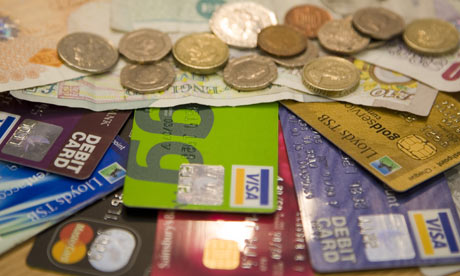 |
Aerial view of western Egypt
Taken August 2007 en route from Amsterdam to Uganda
(c) Thrifty Gypsy |
Airfare. It's the one aspect of traveling that can wreak havoc on any planner's budget, particularly transatlantic or transpacific flights. But instead of dreading the search and purchase of a plane ticket, turn it into a competition with yourself to find the best price possible. The time you spend researching will be well-worth the money you save on the ticket.
When To Buy
There are a lot of articles floating around the web regarding the best time to buy your plane ticket. Even
BuzzFeed has a fun infographic about the best time to book your vacation based on what region you'll be visiting. According to a study by
CheapAir released in March 2014 which was then reported by everyone from the
Huffington Post,
FOX News, and the
Daily Mail,
54 is the "magic number" of days before your departure for when you
should book your flight. That is, on average, booking your flight
exactly 54 days before take-off resulted in the cheapest flight.
While
this may be true in general, actual results may hinge on the time of year you're traveling and how popular your destination happens to be. In my opinion, the sooner you book, the better.
It's better to have your tickets bought and confirmed than to wait,
especially if you're going to a popular destination. My personal
experience has been that prices only go up the closer you get to
departure, not down, and unless you have the luxury of being able to shell out money for a ticket no matter what the price, then it's better to buy it as soon as you have the money.
How to Find the Best Deals
Just like with hotel hunting, I use a number of different websites to compare prices and flight times, and I also check the airline's website against the discount sites to ensure that I'm really getting the best deal.
Orbitz is my go-to for all my travel plans, although I don't always end up booking through them. Currently I'm looking to travel to Boston from Richmond for a family member's wedding the first weekend in May, but with my upcoming trip to Europe this summer (and various mechanical problems on all my vehicles right now!), saving money is my top priority.
A quick search on
Orbitz shows the cheapest round-trip flight priced at $160, but a closer observation reveals the departure times to be 6:30 on Friday and 8:45 on Sunday both on
JetBlue. This is problematic for me as I need to work a full day before flying out and getting to the airport by 8:45 on the day after an evening wedding sounds painful! After changing the parameters of the search, I'm now looking at a 18:50 departure on Friday, but the price has jumped to $174 per ticket.* Now before I settle for paying that price, here's where I roll up my sleeves and see if I can find a better deal on another website.
So I turn to my next favorite flight deal website:
SkyScanner.
SkyScanner is similar to sites like
Kayak in that they search all airline's websites
and other search sites to compile the best possible options for your search parameters. SkyScanner also offers an app for all phone operating systems - iPhone, Android, Blackberry, and yes, even Windows. (This may be why I'm such a fan of SkyScanner as there aren't nearly as many app options for Windows phones!) Once I enter my flight dates and times, my extra effort to shop more than one website pays off: $160 for the 18:50 flight out on Friday on JetBlue and a 20:18 touchdown in Richmond on that Sunday with
Delta.
Sold!!!

You cannot book directly on
SkyScanner, so once I select my flight plan, I am directed to another website to complete the purchase (in this case, it was
AirFastTickets.com, but you could be directed to any number of third-party booking sites). As with any purchase, triple-check the details to make sure you're purchasing exactly what you want, and make sure you understand any fine print (such as additional fees for carry-on or checked luggage, etc). Once you're fully satisfied, buy with confidence!
Discounts for Students
For those of you who are currently full-time or even part-time university students, you should also use
StudentUniverse as a reference for cheap flights.
StudentUniverse showcases deals offered exclusively to students; they even require that you upload a photocopy of your student identification card and one other proof of current enrollment such as a class schedule from your university. Their prices generally tend to be only a few bucks cheaper than other sites, but they proved to be a pot of gold when I bought a last-minute ticket to London. All other sites were showing $1600 for a next-day departure from Dulles International Airport to Heathrow; however, I bought it for $880 on
StudentUniverse. Now
that is what I call being thrifty and knowing where to shop!
Cheap Transatlantic Flights
Last week I learned that
Norwegian Air Shuttle is joining the market for cheap transatlantic flights, offering service to various European hubs and destinations from JFK in New York City, Ft Lauderdale, Florida, and Los Angeles and Oakland-San Francisco in California. Their
"Long Haul" routes boasts a price of $1066.50 for a New York to London flight in the middle of high-season tourism for July 2014. Flights listed on Orbitz, Expedia, and Priceline for the same dates of travel were listed at $1166 and higher. Their prices for the shoulder months of tourist season offered even higher savings with one-way November flights to London priced at only $244! What a steal!
 |
| These prices make me want to leave right now!!! |
Now keep in mind that these long-haul flights come with a few caveats - you have to pay additional money for in-flight meals and entertainment; there may be extra fees for checked luggage, and unless you're paying with a debit card, there may be a credit card processing fee. However, because I rarely even eat half of the in-flight meals, I'd rather save money on the ticket and bring my own snacks and entertainment! I haven't yet used
Norwegian Air Shuttle, but will definitely keep them on my radar for future bookings.
Frequent Flyer Programs
Don't pass up the opportunity to make your miles count! Even if you use a different airline on each trip, sign up for their frequent flyer miles programs. It's usually free to do, and you never know - one day you may rack up enough miles on one airline to get yourself a free or discounted ticket!
~ Just a Thrifty Gypsy

*As Americans, we are spoiled by relying on a twelve hour clock representation of time. However, most of the world uses the 24 hour clock (a.k.a. "military time" as we Americans say), which eliminates any confusion should the author forget to specify whether it's "a.m." or "p.m." When referring to transportation, I will almost always use the 24 hour clock. To figure out the corresponding 12 hour clock time, simply subtract 12 from any number higher than 12 (e.g., 16:30 is 4:30 pm).
Now if only there were an easy way to convert from the English to metric system or Fahrenheit to Centigrade!










































